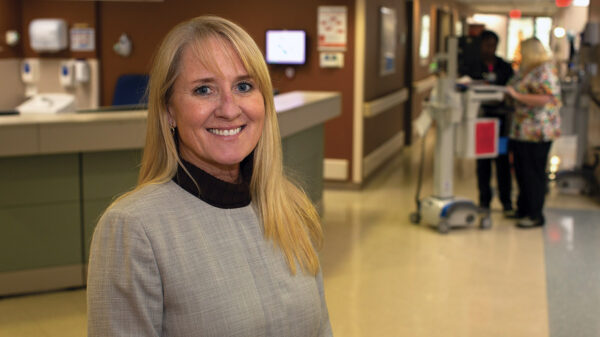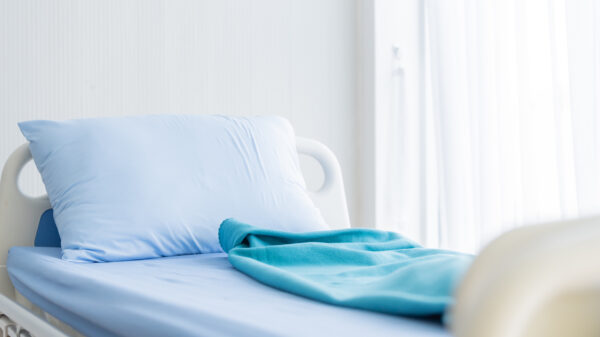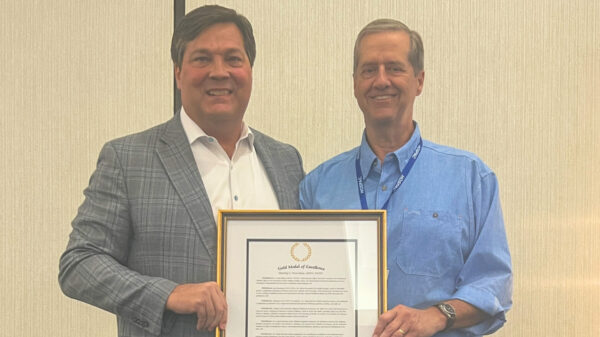Alabama on Thursday reported another record day of new COVID-19 cases, and more COVID-19 patients were in hospitals than ever before as the state faces an increasingly dire crisis heading toward Christmas.
The stark records come the day after Alabama had the fewest intensive care beds available, the most COVID-19 patients in ICUs and a record number of coronavirus patients on ventilators, Alabama Hospital Association President Dr. Don Williamson told APR on Thursday.
Alabama’s ICU availability dipped to a record low 8 percent Wednesday, with just 130 beds available statewide. A record-high 39 percent of ICU beds in use were occupied by those with COVID-19.
“Unless people start wearing the mask, I think the system hits the wall sometime early in January,” Williamson said. At that point, hospitals simply won’t have the staffing to do urgent medical procedures, he said.
Hospitals statewide are struggling with the surge in COVID-19 patients. UAB Hospital on Thursday had a record 159 COVID-19 patients. The Huntsville Hospital System was caring for 411 COVID-19 patients on Thursday, down just slightly from a record high of 415 on Wednesday.
Jefferson County hospitals on Wednesday had just 13 ICU beds available — six for non-COVID patients, or 2 percent, and 7 for COVID patients, or 4 percent — according to an update by the Jefferson County Department of Health.
“This surge in cases is very likely due to travel and gatherings associated with Thanksgiving. Unfortunately, the increase in hospitalizations being seen now is just the beginning of the increase of the hospital surge related to Thanksgiving. Hospitals and their staff are already under strain,” the Jefferson County Department of Health update reads.
“I think you’re clearly, obviously seeing the Thanksgiving numbers in the cases,” Williamson said. “And I think we’re beginning to see Thanksgiving in the hospitalizations.”
The Alabama Department of Public Health reported 4,735 new COVID-19 cases Thursday morning but noted that approximately 10 percent were older, backlogged results from multiple facilities conducted between Oct. 5 and Dec. 7.
Excluding those tests and Tuesday’s total, which also contained older results, the state recorded approximately 4,261 cases Thursday, the most in a single day since the pandemic arrived in Alabama.
Alabama’s 14-day average of daily cases broke 3,000 for the first time Thursday, reaching 3,069. That’s a 63 percent increase from three weeks ago.
{{CODE1}}
Both Alabama’s seven-day and 14-day average positivity rate were 35 percent on Thursday. Public health experts say that rate needs to be at or below 5 percent or cases are going undetected.
{{CODE4}}
The number of patients in hospitals with COVID-19 reached 2,170 on Thursday, and the average number in hospitals over the last week was a record high as well at 1,997. That’s a 40 percent increase from two weeks before.
{{CODE2}}
Williamson said he’s never before worried about the state running out of ICU beds. He’s always worried that staffing would fall short before that happens, but said that if Alabama gets to 2,500 hospitalized COVID-19 patients that he is “going to be worried about ICU beds.”
“And even if you have them, you don’t have the staff to run them,” Williams said.
If Alabama’s hospitalizations climb next week at the same pace they have this week, the state could end the week with 2,465 hospitalized COVID-19 patients.
ADPH on Thursday reported that 49 more Alabamians died from COVID-19, bringing the state’s total to at least 4,034. The state averaged a record-high 37 new confirmed deaths each day this week.
{{CODE3}}
Dr. Kierstin Kennedy, UAB’s chief of hospital medicine, told reporters Wednesday that UAB’s medical intensive care unit “is full and has been for several weeks” and staff have been taking over other ICU units in the hospital to make room for COVID-19 patients, but explained that the practice isn’t sustainable.
“I think we are exhausted, and it’s only the beginning,” Kennedy said.
Kennedy said colleagues from UAB’s School of Public Health have been helping hospital staff by providing models based on current case data.
“And the projections are absolutely terrifying,” Kennedy said. “We expect our current volumes to double by next week.
“If something doesn’t change, in very short order, there is no reason to think that we won’t just continue to see an increase in COVID cases, and that we won’t continue to see an increase in hospitalizations, and that we will not get beyond our capacity to take care of those patients, and that is incredibly scary,” Kennedy said.
Kennedy explained that whereas before, patients would come in and there was time to have the difficult conversations with them surrounding their wishes about resuscitation and being placed on a ventilator, many patients are now coming in right on the cusp of serious illness.
“We will often admit patients that, within an hour or two of them getting to the floor, we start to recognize that their oxygen needs are increasing, their respiratory rates are increasing, and it’s really sort of now or never, as far as making a decision on what we’re going to do,” Kennedy said.
“We are having people that are having a lot of anxiety about if and when we get to a point where we have to choose who gets to go to the ICU and who doesn’t,” Kennedy said. “Fortunately, we’re not there yet, but with the way that numbers continue to climb I think people are recognizing that that could come sooner rather than later, and that is very hard for physicians and advanced practice providers who are trained to give their best to every single patient.”
Such difficult triage decisions, which can mean prioritizing efforts to save one person’s life over another’s, became very real for physicians in New York City and in Italy earlier in the pandemic.
Kennedy said UAB isn’t there yet, but described the possibility of having to make such decisions as “our worst nightmare.”




















































